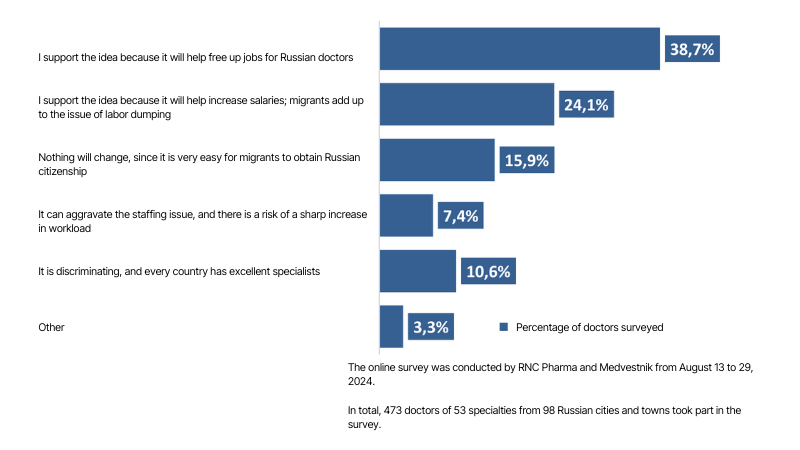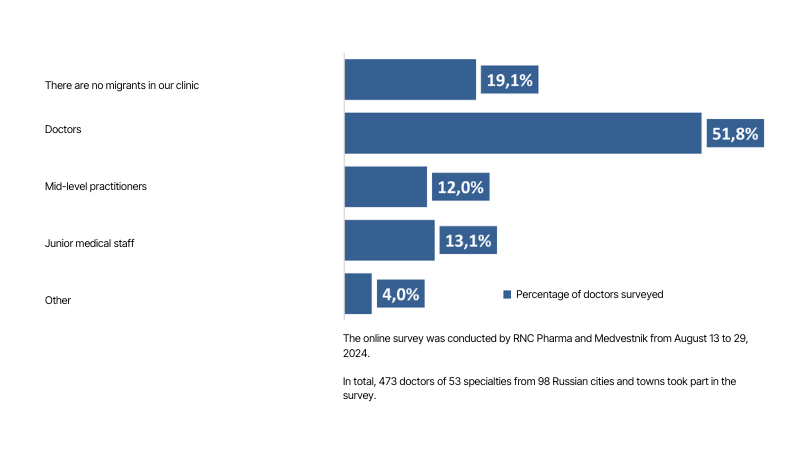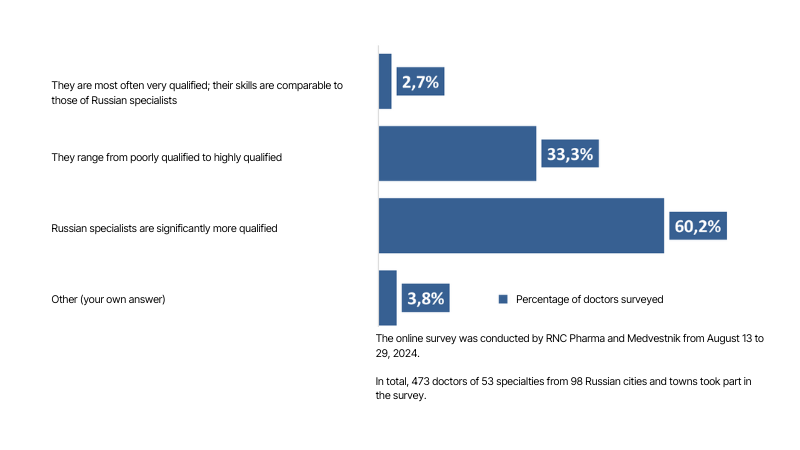RNC Pharma: Average Receipt in Veterinary Pharmacies Exceeds 1,000 Rubles in Moscow in Q1–Q2 2024
Most Russian physicians support the initiative to ban migrants from working in Russian clinics, according to a survey conducted by the RNC Pharma analyst company and the Medvestnik platform for doctors. At the same time, 38.7% of the respondents said that this would help free up jobs, and another 24.1% noted that migrants added up to the issue of labor dumping, and the ban would help to increase salaries (Fig. 1). Another 15.9% of the respondents doubted that any ban would change anything, since the existing migration legislation allows foreigners to obtain Russian citizenship very easily. Interestingly, the results did not have any statistically significant differences based on gender, age, or region, despite the fact that the problem of migration in Russia differs from region to region.
The total number of those who spoke out against the ban does not exceed 18%, with 10.6% explaining it by the fact that the ban discriminates against foreign doctors, and they may include highly skilled specialist. Those who chose to give their own answer said that it was important to develop very strict testing for foreign specialists to confirm their qualifications. Another 7.4% do not support the ban because they are afraid it can aggravate the staffing issue in the healthcare system and there is a risk of a sharp increase in workload.
Fig. 1. What do you think about the idea to ban migrant from working in healthcare?

Only 19.1% noted that there were no migrants working in their clinics at all (Fig. 2). The rest said that in most cases (51.8%), foreign specialists work as doctors, a position that requires a very high level of qualification. Migrants also work as junior medical staff and mid-level practitioners (13.1% and 12%, respectively).
Fig. 2. What position do most migrants take up in your clinic?

We also asked the respondents to assess the level of qualification of their migrant coworkers (Fig. 3). As many as 60.2% of the respondents said that the skills of migrants were significantly lower than those of Russian specialists in similar positions. Exactly one-third of the respondents (33.3%) said that the levels of qualification of migrant workers ranged from very poor to very good. At the same time, only 2.7% of the physicians said that their migrant coworkers’ skills were comparable to those of Russian doctors.
Fig. 3. How qualified are you migrant coworkers, in your opinion?

 Рус
Рус




